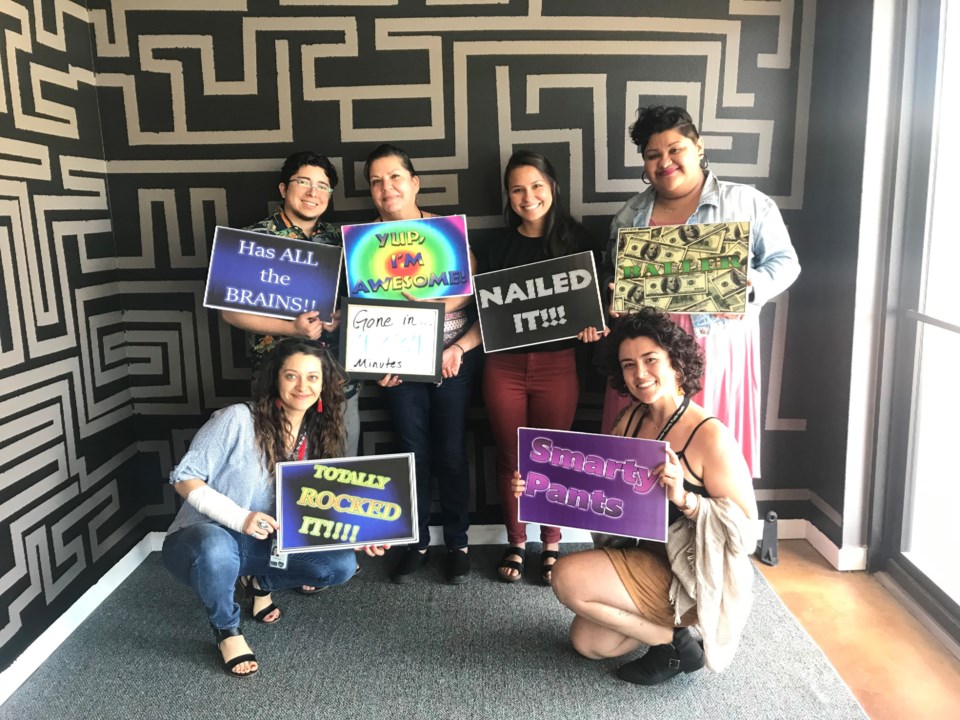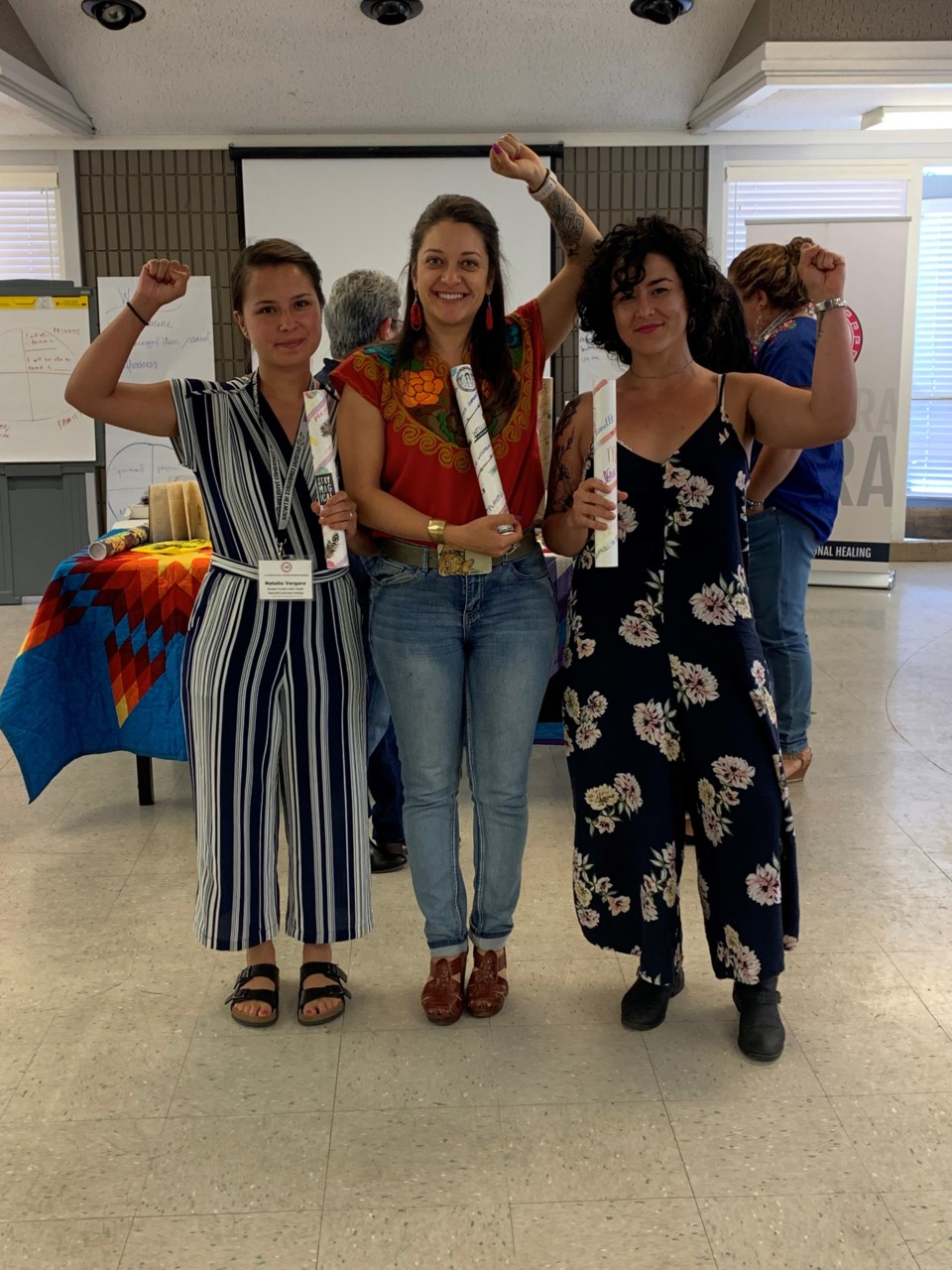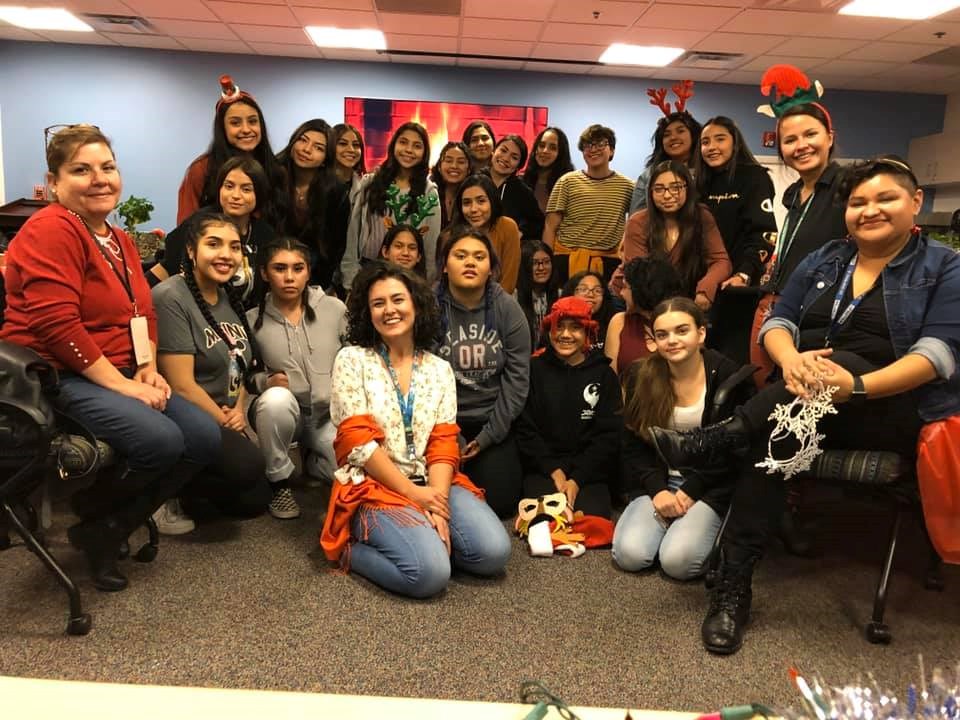Lea esta historia en español aquí.
***
April Cardenas-Borrego was eager to share her story about participating in the Generations program. She said her mom had been a teen mom, which was the reason April joined at age 15.
“Generations (formally known as Genesister) supports youth during their teen years as well as their parents/guardians to prevent school dropout and reduce incidences of unplanned pregnancies through mentorship, self-empowerment tools, and culturally responsive programming. Generations pogram and framework is centering the Latinx, immigrant, and first-generation experience in Boulder County,” according to the Boulder County website.
“At first I didn't want to go because I didn't know anybody but once I started going, I noticed it was a bunch of people who looked like me. It felt like a safe space where I could be myself and not have to hold back who I am,” Cardenas-Borrego said.
Cardenas-Borrego, a college sophomore at the University of Colorado Boulder and former Generations participant, reflected on her experiences throughout the three years she was part of the program. Her takeaway: inclusivity matters.
“What I liked most about the program is that it is very inclusive. Generations is just a safe place where, if you need any type of resources, it's there for you to ask for. It’s a group where you can just not hide… I learned a lot about being myself and that it is okay to be a proud Latina in the community, and that we can succeed, ” she said.
Founded in 2010, Generations started as a pregnancy prevention program working with the sisters of pregnant and parenting teens in the Genesis program of Boulder County Public Health.
“What they noticed is that when they had a pregnant client, soon after the sister would follow. They were seeing this as contagious within the family structure. This is how Genesister was born, for the sisters of Genesis participants,” said Maya Sol Dansie, program coordinator, director of youth programming at El Centro Amistad, and founder of the Annual Cumbre de Jóvenes Latinx Compañeras.
 Retreat escape room: Back row, from left, David Brena (Open and Affirming Sexual Orientation and gender identity support, or OASOS program specialist), Yanina Gomez (Generations parent specialist), Natalia Zamboni-Vergara (Generations youth specialist), Lourdes Mendoza (Generations parent specialist).Front from left, Maya Sol Dansie (Generations program coordinator), Daniella Escobar (Generations youth specialist). (Photo courtesy of Generations program)
Retreat escape room: Back row, from left, David Brena (Open and Affirming Sexual Orientation and gender identity support, or OASOS program specialist), Yanina Gomez (Generations parent specialist), Natalia Zamboni-Vergara (Generations youth specialist), Lourdes Mendoza (Generations parent specialist).Front from left, Maya Sol Dansie (Generations program coordinator), Daniella Escobar (Generations youth specialist). (Photo courtesy of Generations program)It has since evolved into an intergenerational initiative that focuses on promoting reproductive justice serving youth ages 12 to 17 and their parents, according to Dansie.
“What youth learn is exactly what parents learn, many of whom did not have the resources or conversations about sexual health when they were young, this way creating bridges of communication and of resources for participants to lead and choose the lives that they want,” she said.
The key components of the program include:
-
Case management through the support of a mentor
-
Weekly educational sessions for youth on pregnancy prevention, empowerment, adolescence, among other topics
-
Monthly education sessions for parents on systems navigation, available resources, and their rights as individuals
-
Pro-social activities and group events for youth
-
Committee service learning for a community project to encourage civic participation
“What we do with the youth is talk with them in a group and one-on-one. We have conversations about sexual health, how to communicate with parents, and joint talks with families, so they can understand each other,” said Daniella Escobar, Generations youth program specialist.
The program is free to all participants. Most referrals come from the GENESIS program but the network has expanded to also include youth referred from schools, counselors, clinics, and, most recently, through self-referral, according to Dansie.
Culturally comprehensive approach
According to the 2018 Status of Children in Boulder County report, “teen birth rates in Boulder County were higher (between 2010-2017) among Hispanic women aged 15-19 years than among white, non-Hispanic women” and “of younger teen mothers (15-17 years) in the county, 83% were in Longmont.”
There are cultural factors that might contribute to a higher incidence of teen pregnancy among Hispanic youth, according to Dansie. “Any person who has experiences with racism and discrimination is at a a higher risk of getting pregnant or engaging in risky behaviors, this is what has led to the evolution of the program for which all the staff is bicultural, bilingual and has some kind of relationship to the topic of immigration,” she said.
According to Dansie, the comprehensive and culturally competent nature of the Generations program addresses the physical, mental, spiritual, and cultural aspects of a youth’s life. “It is a delicate subject in this culture … Many of the families have had experiences with (teen) pregnancy and are open to exploring other ways to navigate decision-making,” she said.
The program has become responsive to other elements of identity, such as gender, acknowledging experiences of nonbinary, fluid and trans individuals by accepting any person that may become pregnant, according to Dansie.
 Natalia Zamboni-Vergara (Generations youth specialist), Maya Sol Dansie (Generations program coordinator), and Daniella Escobar (Generations youth specialist). (photo courtesy of Generations program)
Natalia Zamboni-Vergara (Generations youth specialist), Maya Sol Dansie (Generations program coordinator), and Daniella Escobar (Generations youth specialist). (photo courtesy of Generations program)Xinachtli
In 2018, the Department of Anthropology at CU Boulder performed an evaluation of the program to help determine future steps, which informed the name change from Genesister to Generations, as well as the creation of the Xinachtli Germinating Seed curriculum, based on Indigenous principles on the individual’s interconnectedness to family, community and nation, according to the program’s description.
“We seek to practice what our ancestors practiced when talking, holding ceremonies, celebrating and doing some kind of healing or grieving. What affects us affects our family and our work. Doing this work we are all healing many things,” said Dansie.
Xinachtli is a rights of passage curriculum within the Generations program designed to provide bicultural youth the guidance for a healthy development into adulthood, according to the programs’ description.
“It is not as simple as just talking about sexual education, we talk about culture, our parents, the opportunities we have had compared to our peers, racism, etc. It’s not specifically about education, but also about promoting more autonomy, empowerment and a connection to culture,” said Dansie.
Impacts of the Pandemic
Since the beginning of the year, the program has served more than 100 families, including about half from Longmont, Dansie said. COVID-19 has pushed all sessions to virtual platforms, which has altered the interpersonal nature of programming, according to Lourdes Mendoza, Generations bilingual parent specialist.
“It’s something that has changed drastically for the youth … It is not the same with the virtual format. We want something to keep them connected. We are still here, we cannot go to their houses or on trips, but we are still something that keeps them connected,” she said.
However, the program remains ever more relevant to Boulder County participants during the pandemic, according to Dansie. “If before there were inequities, now this is going to escalate much more. We are now going to see more racism, poverty and problems with access to supports,” she said. “We have only had one (teen) pregnancy in five years and it was during COVID. It’s very few times when we see a pregnancy.”
The COVID crisis has shifted funding and staffing priorities for the health department, which makes the future of youth sexual health programming uncertain, according to Dansie.
“We don’t know where or how we are going to be at the end of this year or the next. Many of our funding comes from the local, state and federal government, and they all say they cannot guarantee anything for next year,” she said. “Because of the collaboration we have with the community and the resiliency as Latinos in Boulder County, this gives us the motivation that we can make it, and I am not alone, I have 20 comadres (close friends) who are supporting me.”
Generations welcomes donations of items including menstrual products, emergency contraception, pregnancy tests, craft supplies, and self-care kits.
For more information on the program and needed donations, click here or contact Dansie at 303-678-6139.


